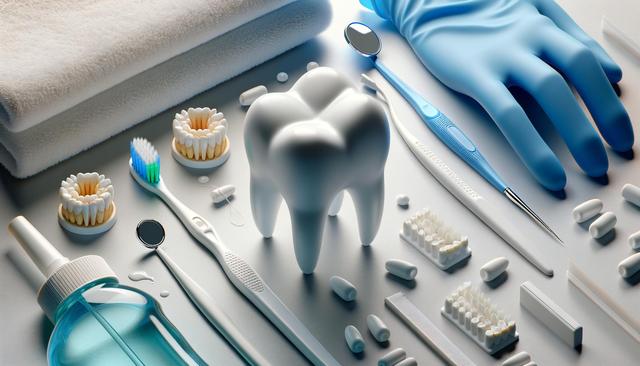Rising Interest in the Dental Hygiene Field
Over the past few years, the number of individuals exploring careers in dental hygiene has seen a noticeable increase. This growing interest stems from a variety of factors, including a greater public awareness of oral health, the stability of healthcare professions, and the appeal of a hands-on, patient-focused role. Dental hygienists play a critical part in preventive care, helping individuals maintain healthy teeth and gums, and this essential function is gaining more recognition. Additionally, many people are drawn to the profession due to its relatively short training period compared to other healthcare paths, allowing quicker entry into the workforce.
Dental hygiene programs are now being sought after by recent high school graduates, career changers, and professionals in adjacent fields. The blend of clinical work and scientific knowledge required in this role offers a well-rounded career option for those interested in health sciences. Furthermore, job prospects in dental hygiene remain strong in many regions, with employment opportunities available in both private practices and public health settings.
What a Dental Hygienist Does
Dental hygienists are responsible for a range of preventive dental services that support both oral and overall health. These professionals often work closely with dentists and other dental team members, performing tasks that require both precision and a solid understanding of oral anatomy. Common duties include:
- Conducting oral health assessments and periodontal exams
- Cleaning teeth and removing plaque and tartar buildup
- Applying fluoride treatments and sealants
- Educating patients on proper brushing and flossing techniques
- Taking and developing dental X-rays
Beyond these technical duties, hygienists also serve as educators and advocates for patients. They help individuals understand the connection between oral hygiene and systemic health, such as how gum disease can impact heart health. This educational component is a key part of the role and one that appeals to those who enjoy working directly with people and making a tangible difference in their lives.
Core Components of Dental Hygiene Programs
Dental hygiene programs are designed to equip students with both theoretical knowledge and practical skills. Typically offered at community colleges, technical schools, and some universities, these programs usually span two to three years and culminate in an associate degree or diploma. A few programs also offer bachelor’s degrees for those seeking expanded career options in research, education, or public health.
The curriculum combines subjects such as anatomy, physiology, microbiology, and dental materials with supervised clinical training. Students gain experience in:
- Assessing patient health histories
- Using dental instruments and ultrasonic scalers
- Interpreting radiographs
- Managing infection control protocols
This dual approach ensures that graduates are well-prepared to meet licensure requirements and enter the workforce with confidence. Licensing typically involves passing both written and clinical examinations, which the structured training in these programs is designed to support.
Why More People Are Choosing This Career Path
The increasing popularity of dental hygiene programs can be linked to a combination of practical and personal motivations. For many, the profession offers a rewarding balance of work-life flexibility, competitive compensation, and a positive job outlook. These benefits are especially appealing to those looking to enter a healthcare role without investing in the extended education required for other careers such as dentistry or nursing.
Moreover, dental hygienists often enjoy a high level of autonomy in their roles. While they work under the supervision of dentists, they are trusted to manage patient care independently during appointments. This independence, coupled with the opportunity to build long-term relationships with patients, creates a sense of professional fulfillment for many in the field.
Other appealing aspects of the career include:
- Opportunities for part-time or flexible schedules
- Variety in daily tasks and patient interactions
- Potential to work in various environments, including schools and public health programs
- Continual learning through professional development and certification
Future Outlook and Professional Development
As the healthcare landscape continues to evolve, the role of dental hygienists is expected to expand even further. There is a growing emphasis on preventive care and early intervention, which places dental hygienists in a favorable position to contribute meaningfully to patient wellness. Additionally, some regions are beginning to allow expanded scopes of practice for hygienists, including the ability to administer local anesthesia or perform limited restorative procedures under certain conditions.
Professional development is a key aspect of long-term success in the field. Many dental hygienists pursue ongoing education to stay current with changes in technology, infection control standards, and patient care techniques. Associations and organizations dedicated to dental hygiene often provide resources such as webinars, workshops, and certification programs that support career growth.
For those interested in advancing beyond clinical practice, options include roles in dental sales, public health advocacy, or academic instruction. These paths allow experienced professionals to share their expertise while contributing to the broader field of oral healthcare.
Conclusion: Is a Dental Hygiene Program Right for You?
For individuals interested in science, healthcare, and patient care, pursuing a dental hygiene program can be a fulfilling and practical option. The combination of hands-on work, meaningful patient interaction, and a focus on preventive health makes this career path both stable and personally rewarding. As more people prioritize oral health and seek reliable healthcare careers, dental hygiene continues to attract students from diverse backgrounds. With structured training, licensure opportunities, and a wide range of work environments, dental hygienists are well-positioned for continued success in the healthcare sector.




Leave a Reply